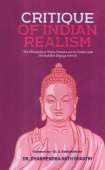Ratnakirti, Ratnakīrti: 7 definitions
Introduction:
Ratnakirti means something in Buddhism, Pali, Hinduism, Sanskrit. If you want to know the exact meaning, history, etymology or English translation of this term then check out the descriptions on this page. Add your comment or reference to a book if you want to contribute to this summary article.
In Hinduism
General definition (in Hinduism)
Source: EAST: South Asia and TibetDisciple of Jñānaśrīmitra; Life dates: ca. 990–1050 (according to Kajiyama 1966 p. 9). On the relationship to Jñānaśrī and Ratnākaraśānti cf. Mimaki 1992.
Works by Ratnakīrti:
- Apohasiddhi
- Īśvarasādhanadūṣaṇa
- Kṣaṇabhaṅgasiddhi (anvayātmikā)
- Kṣaṇabhaṅgasiddhi (vyatirekātmikā)
- Citrādvaitaprakāśavāda
- Pramāṇāntarbhāvaprakaraṇa
- Vyāptinirṇaya
- Santānāntaradūṣaṇa
- Sarvajñasiddhi
- Sthirasiddhidūṣaṇa
In Buddhism
General definition (in Buddhism)
Source: China Buddhism Encyclopedia: BuddhismRatnakīrti (fl. c7-8th century), a Disciple of Dharmakīrti, wrote a work that further developed and refined the themes therein, entitled: 'Refutation of Other mindstreams' (Saṃtãnãntaradusana). He did not refute the tenets of the Saṃtãnãntarasiddhi but further developed the topic from an empirical one, that is, where there are manifold minds cognized by one's experience of others' Mental processes attributed through the perceived actions of other Sentient beings to an absolutist view, where there is only "one Mindstream" (ekacitta). Ratnakīrti's argument is that the valid cognition (pramāna) of another's Mindstream is an inference (anumāna), not a direct Perception (pratyakṣa). Moreover, Ratnakīrti introduced the two truths Doctrine as key to the nature of the discussion as inference is trafficking with illusiory universals (samanya), the proof of the mindstreams of others, whilst empirically valid in relative Truth (saṃvṛtisatya), does not hold ultimate metaphysical certainty in absolute Truth (paramārthasatya).
Source: academia.edu: The Chronological History of BuddhismRatnakirti (850-770 BCE) was a royal prince and he became a disciple of Chandragomin. Interestingly, Ratnakirti renounced the vow of ordination and made love to a princess as recorded by Prajnakaramati. Vairochanamitra mentions that Ratnakirti renounced the vow to ascend the throne with help of a minister. To bring back Ratnakirti, Chandragomin wrote a letter known as “Shishya-Lekha”.
Languages of India and abroad
Sanskrit dictionary
Source: Cologne Digital Sanskrit Dictionaries: Edgerton Buddhist Hybrid Sanskrit DictionaryRatnakīrti (रत्नकीर्ति).—name of a former Buddha: Lalitavistara 5.11.
Source: Cologne Digital Sanskrit Dictionaries: Monier-Williams Sanskrit-English DictionaryRatnakīrti (रत्नकीर्ति):—[=ratna-kīrti] [from ratna] m. Name of a Buddha, [Lalita-vistara]
[Sanskrit to German]
Sanskrit, also spelled संस्कृतम् (saṃskṛtam), is an ancient language of India commonly seen as the grandmother of the Indo-European language family (even English!). Closely allied with Prakrit and Pali, Sanskrit is more exhaustive in both grammar and terms and has the most extensive collection of literature in the world, greatly surpassing its sister-languages Greek and Latin.
See also (Relevant definitions)
Partial matches: Ratna, Kirti.
Ends with: Maharatnakirti.
Full-text: SBNT, Jnanashrimitra, Ratnakarashanti, Apohasiddhi.
Relevant text
Search found 6 books and stories containing Ratnakirti, Ratna-kirti, Ratna-kīrti, Ratnakīrti; (plurals include: Ratnakirtis, kirtis, kīrtis, Ratnakīrtis). You can also click to the full overview containing English textual excerpts. Below are direct links for the most relevant articles:
The Buddhist Philosophy of Universal Flux (by Satkari Mookerjee)
Chapter VII - The Doctrine of Apoha or the Import of Words < [Part I - Metaphysics]
Chapter III - Objections from the Point of View of Causation explained < [Part I - Metaphysics]
A comparative study between Buddhism and Nyaya (by Roberta Pamio)
Review of Literature < [Introduction]
Indian and Buddhist Epistemology: an Introduction < [Introduction]
Blue Annals (deb-ther sngon-po) (by George N. Roerich)
Chapter 28 - Paṇḍita Vanaratna < [Book 10 - The Kālacakra]
Reverberations of Dharmakirti’s Philosophy (by Birgit Kellner)
Maṇḍana Miśra’s Excursus on the Buddha’s Omniscience
Jñānaśrīmitra on Viparyaya-bādhaka-pramāṇa
A History of Indian Philosophy Volume 2 (by Surendranath Dasgupta)
Part 4 - Teachers and Pupils in Vedānta < [Chapter XI - The Śaṅkara School of Vedānta (continued)]
Yogadrstisamuccaya of Haribhadra Suri (Study) (by Riddhi J. Shah)
Chapter 2.4 - Works of Haribhadrasūri < [Chapter 2 - Life, Date and Works of Ācārya Haribhadrasūri]
Related products
